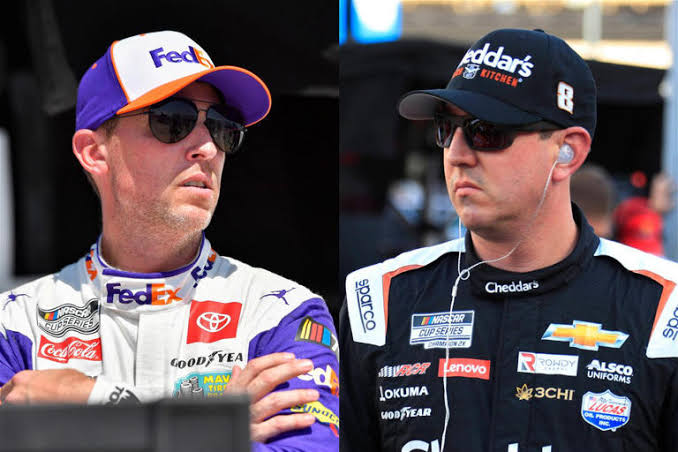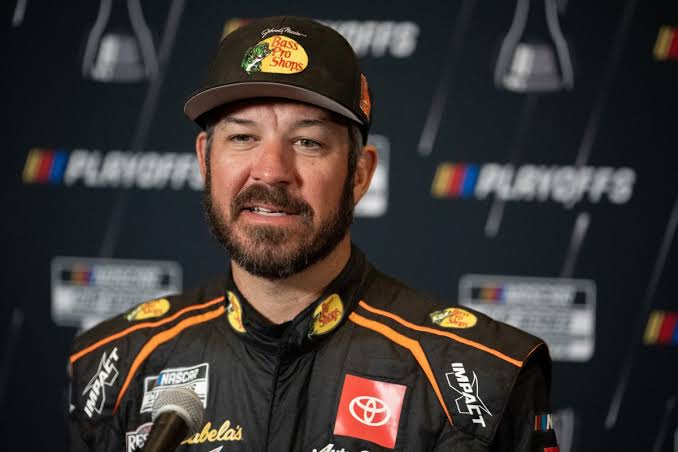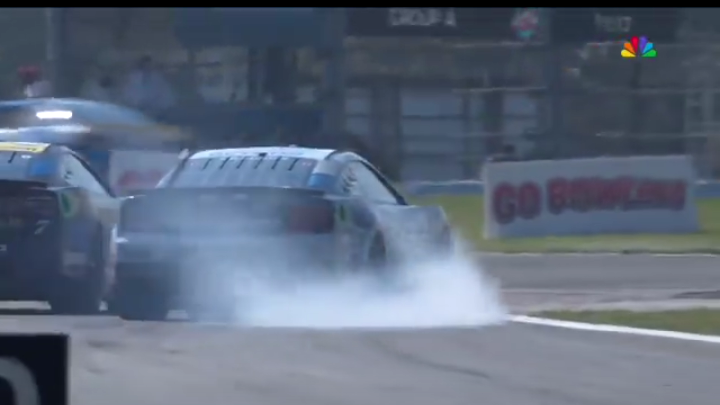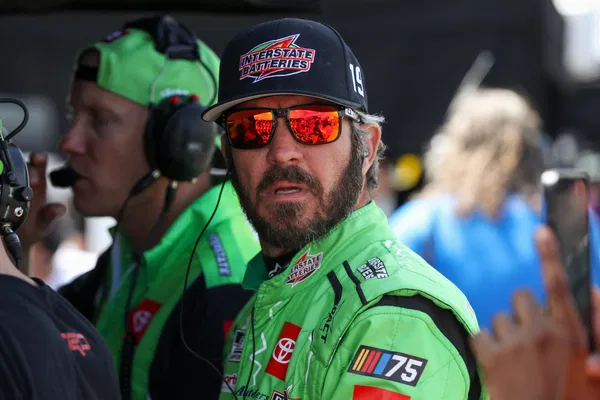Denny Hamlin’s performance at the Atlanta playoff race sparked plenty of conversation and surprise. The Joe Gibbs Racing driver adopted a defensive strategy, attempting to play it safe and gather points rather than chase an aggressive win. While this might seem cautious, Hamlin had a valid reason: engine troubles. Yet, many questioned whether this was the best approach in a high-stakes playoff scenario where opportunities are limited.
Kyle Petty, a former NASCAR driver and analyst, was one of those who openly criticized Hamlin’s strategy. Petty questioned the logic of aiming for points over wins, stating, “Who goes into the playoffs saying, ‘I want to get 20 points in the first race?’” Hamlin’s plan was clear—stay out of the chaos and avoid crashes to ensure a solid points finish. But ironically, this strategy backfired when he got caught in a late-race pile-up, finishing 24th. Instead of gaining a safe points buffer, Hamlin’s conservative approach left him with disappointing results.
However, Kyle Busch, Hamlin’s former teammate, defended the strategy. According to Busch, Hamlin wasn’t holding back entirely; he was simply playing the cards dealt to him. Busch explained that Hamlin’s cautious tactics weren’t born from fear but were a calculated decision based on his past struggles at Atlanta. Unfortunately, luck wasn’t on Hamlin’s side, and his approach didn’t pay off.
Hamlin’s struggles at speedways, especially in the Next Gen era, are no secret. Since Atlanta’s 2021 track repave, Hamlin hasn’t been able to find his winning groove. In his last six starts at the quad oval, he’s only secured one top-10 finish. With this track record, Hamlin went into the Atlanta race with modest expectations, aiming to secure as many points as possible instead of risking it all for a win.
Hamlin’s recent superspeedway results further justified his cautious approach. He had DNFs (Did Not Finish) in both his last two races at Talladega and Daytona. Given these past misfortunes, it made sense for him to adopt a more pragmatic strategy. Busch supported this line of thinking, explaining that Hamlin was simply trying to survive the first playoff round. “He just needed a points number; that’s all he was looking for,” Busch said during NASCAR’s “Inside the Playoffs” segment.
Yet, while Busch understood Hamlin’s intentions, he also pointed out the downside of playing it too safe. NASCAR races, particularly restrictor plate events like those at Atlanta, often reward drivers who stay aggressive and make their presence known in the front pack. Busch explained that if you hang back too much, other drivers won’t see you as a threat, and you risk getting left behind. In short, while Hamlin’s cautious approach had its merits, it left him vulnerable to the unpredictable nature of racing.
Every playoff season, the question is asked: “Is this the year for Denny Hamlin?” Time and time again, Hamlin finds himself within striking distance of the NASCAR Cup Series championship, only to fall short. If Hamlin is to finally conquer NASCAR’s biggest prize, he may need to abandon his points-focused strategy and switch to an all-out attack. But is it too late for Hamlin and the #11 team to shift gears and reignite their playoff push?
This year’s playoffs have been full of surprises, with even top drivers like Kyle Busch, Ross Chastain, Chris Buescher, and Bubba Wallace struggling under the intense pressure. While NASCAR’s playoff format rewards consistency, winning remains the ultimate key to success. A single victory in any of the remaining races could secure Hamlin’s spot in the next playoff round.
Despite his disappointing finish in Atlanta, Hamlin still has two more races to turn things around. Up next is the road course at Watkins Glen, followed by a short track race at Bristol Motor Speedway. While Hamlin isn’t known as a standout road course racer, Watkins Glen has been a relatively strong track for him. He finished second in last year’s race and has three top-five finishes in his last four starts at the 2.45-mile course.
If it comes down to the final race at Bristol, Hamlin has plenty of reasons to feel confident. Short tracks have been a strong suit for him this season, with two of his three victories coming at similar venues. Additionally, he’s the defending winner of last year’s fall race at Bristol, which should give him an extra boost of confidence heading into the event.
So while Hamlin’s Atlanta performance may not have gone according to plan, all hope is not lost. With a couple of races left in this playoff round, Hamlin and his team have the opportunity to regroup, adapt, and push forward. To secure his place in the next round, Hamlin needs to deliver in these upcoming races. With his past successes at Watkins Glen and Bristol, there’s a solid chance he can still pull off a comeback. It’s all about execution from here on out, and Hamlin’s championship dreams are still alive, as long as he can find the right balance between caution and aggression.
Kyle Busch Vigorously Supports Denny Hamlin’s Atlanta Delay with Impactful 7-Word Remark that Stirred Fans.




